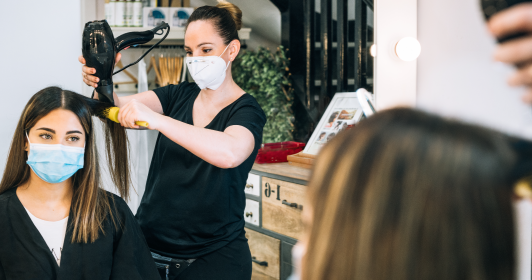
Which Sunscreen Is Best For You?
, by Hi-Health, 4 min reading time

, by Hi-Health, 4 min reading time
By Jessica Rubino

We've got you covered. Learn the differences between chemical and mineral sun protection and what to look for in sun care products

It's a fact, skin cancer is the most commonly diagnosed cancer in the United States. What does that mean for you and your family? It's essential to choose and use a sunscreen. But with so many labels and terms to sort through, the choices can feel overwhelming. The topic has even garnered federal attention: President Obama recently signed the Sunscreen Innovation Act into law to usher more safe UV-protective ingredients into this burgeoning category. Here, we help you narrow down the selection by outlining the pluses and minuses of the two main sunscreen types: mineral and chemical.
Chemical sunscreens use a combination of two to six of these active ingredients: oxybenzone, avobenzone, octisalate, octocrylene, homosalate and octinoxate. They absorb rays in a chemical reaction that dissipates the heat back off the skin.
UV Protection
Don't be fooled by a high sun-protection factor (SPF) number - over 50, for example. The SPF indicates protection only from UVB rays, the ones that cause sunburn and non-melanoma skin cancers; UVA rays are actually more threatening. So a sky-high number likely gives you drastically imbalanced protection (UVB instead of broad-spectrum), plus higher concentrations of chemicals you may want to avoid.

Ingredient Safety
Not all sunscreen chemicals are created equal. If you do opt for a chemical sunscreen, avoid those with oxybenzone, assigned an 8 (out of 10) hazard score by the Environmental Working Group (EWG) because of skin penetration, hormone disruption and allergy problems. Instead, "we recommend looking for chemical products that contain the active ingredient avobenzone at 3 percent," says Nneka Leiba, deputy director of research at EWG. According to the EWG, avobenzone boasts the same low-hazard rank (2 out of 10) as zinc oxide and titanium dioxide.
Appearance
Typically, nanoparticle-based sunscreens rub into skin easily and quickly, and they dry sheer.
Mineral sunscreens use active mineral ingredients, such as zinc oxide and titanium oxide. They reflect the sun's rays like a mirror to protect exposed skin.
UV Protection
When buying sunscreen, protection from UV rays should be your top consideration. In that sense, mineral options take the prize, according to the EWG. Zinc oxide, in particular, delivers the best UVA and UVB protection (also known as broad-spectrum coverage) , says Leiba. "mineral active ingredients don't break down as readily in the sun, offering greater protection for longer."
Ingredient Safety
Generally speaking, naturally derived ingredients used in mineral sunscreens are gentler than chemicals. Still, some considerations remain. Avoid titanium dioxide in powder or spray form; the EWG claims it's linked to toxicity when inhaled. Also, it's worth reading up on nanotechnology, which creates tiny particles that are often used in mineral sunscreens to make them easier to rub in. Since labeling regulations of nanoparticles don't exist yet, ask manufacturers directly about their policies. EWG maintains that nano in sunscreen is safe, but research continues.
Appearance
Other than those that use nanoparticles, mineral sunscreens simply don't rub into skin as well, often leaving a white film. In the quest for mineral sunscreens that apply more evenly, some companies are trying non-nano ingredients, such as an aloe base and ZinClear, a zinc oxide. If you choose a safe mineral classic, expect to take an extra minute to rub it in.
In almost all cases, a mineral sunscreen is a better choice than chemical sunscreen. But, unfortunately, even the safest products and most savvy consumers can't solve another issue in the sun care industry: skin cancer. Sunscreens can protect us from sunburn, but we don't know the extent to which they can protect us from skin cancer. Some studies show that, yes, sunscreen reduces the risk of a certain type of skin cancer called squamous cell carcinoma (SCC), but research hasn't confirmed the relationship between sunscreen and other types of cancers, such as melanoma. The takeaway: As important as it is to wear sunscreen every day, remember to also wear sun-protective hats and clothing, and limit your exposure to all UV rays.


![PRōZE Review [2020 Update]](http://hihealth.com/cdn/shop/articles/cbd_insider_article_graphic_featured_image-11.jpg?v=1591495027)